Meet Our Leadership Team
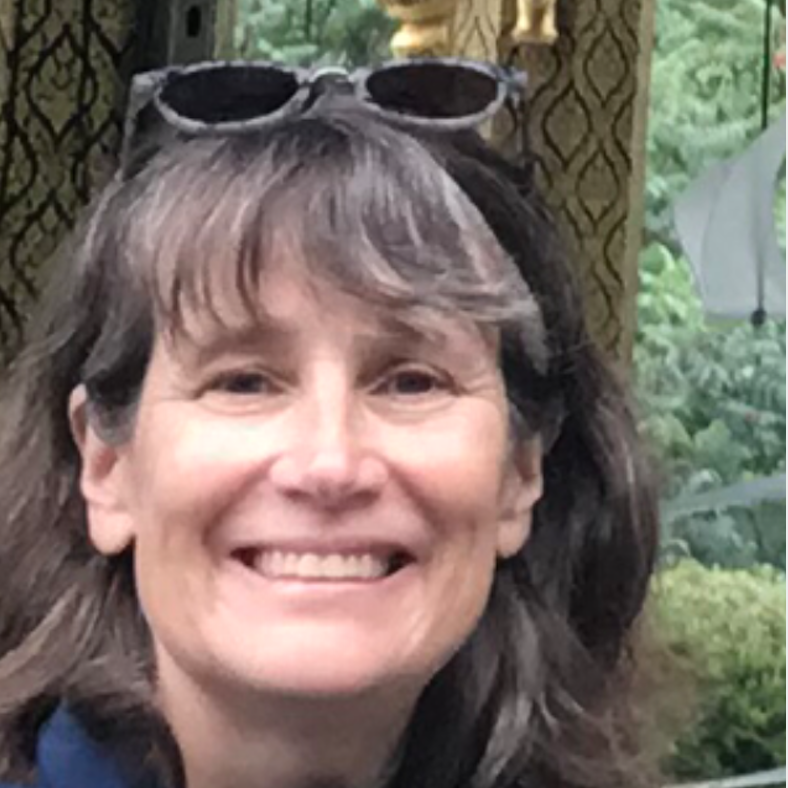
Audrey French, MD
Administrative Principal Investigator
Dr. French is a Professor of Medicine/Infectious Diseases at University of Illinois at Chicago and attending physician at Stroger Hospital of Cook County. She has been caring for HIV-infected women at the CORE Center and doing HIV-related research for over 30 years. She has been an investigator with the WIHS and now the MACS/WIHS Combined Cohort Study since 1997. She is the Chair of the MWCCS Sleep Working Group and PI of the Women’s Sleep IDOze grant and OAR supplement. Her other active grants involve HIV prevention among sexual and gender minority youth.

Mardge Cohen, MD
Principal Investigator
Dr. Cohen has been the Principal Investigator of Chicago WIHS since its inception in 1994. She is an internist who worked at Cook County Hospital in Chicago for over 30 years, and has a long history of activism related to women’s health, health disparities, and fighting for high quality single payer health care. In 1988, she responded to the requests of women with HIV and started the Women and Children HIV Program to provide comprehensive medical and psychosocial services to women, their partners, and children at a single site at Cook County Hospital. She led the CDC funded research in Chicago on HIV testing among women in labor and then directed the public health implementation of rapid HIV testing in labor and delivery areas for all Illinois birthing hospitals. She is especially interested in gender issues including women specific factors associated with mortality, intimate partner violence, and disparities in care. In 2004, she co-founded Women’s Equity in Access to Care and Treatment (WE-ACTx) to facilitate HIV primary care for women who were infected after being raped during the 1994 Rwandan genocide. WE-ACTx, with the Rwandan local organization WE-ACTx For Hope, provides comprehensive HIV care to ~2500 persons in Kigali, integrating mental health care, nutrition and income generation within HIV primary care for women, children, youth and their families. Dr. Cohen also co-led an NICHD research study to improve adherence to antiretroviral therapy of 14-21 year olds with HIV in Kigali.

Ryan Ross, PhD
Principal Investigator
Dr. Ross is an Associate Professor in the Department of Anatomy & Cell Biology at Rush Medical College. His research focuses on the interaction of HIV and antiretrovirals on bone physiology and other musculoskeletal related outcomes. He has worked with the Chicago Cook County CRS since 2018. Currently, he leads 6 concept sheets and is a co-investigator on an additional 6 with several more in the planning stage. He has a MWCCS-linked R01 investigating bone/fat interactions in treated PWH and recently was awarded a Supplement to investigate joint pain in MWCCS. He has fostered a number of successful collaborations across disciplines to expand the scope of these investigations using core cohort date as well as data from nested R01s.

Kathleen Weber, MSc
Co-Investigator and Scientific Liaison
Kathleen has helped shape and lead the Chicago WIHS, now the Chicago Cook County MACS/WIHS Clinical Research Site since its inception in early 1994. As our site’s Project Director for 30 years and now in her continued role as our site Scientific Liaison, Kathleen identifies talented early career investigators and creates scientific teams to collaborate on high impact cross-disciplinary projects using the WIHS/MWCCS robust longitudinal data and specimen repository.
Informed by her early nursing career and now as a public heath researcher and health psychologist, Kathleen has a broad interest in the neuropsychological, social and environmental factors that contribute to HIV and other infectious diseases and chronic disease burden in vulnerable populations. Kathleen has a particular interest in the root causes, including underlying biological mechanisms, and far reaching effects of traumatic and chronic life stress and other gendered issues on individuals, families, and communities. Kathleen is committed to facilitating a collaborative interdisciplinary approach to understanding and addressing health inequities with a particular focus on women aging with HIV.

Elizabeth Daubert Dillon, MPH
Project Director and Lead Epidemiologist
Elizabeth began working with the WIHS in 2017 and participates in data analyses and manuscript writing, as well as clinical and data management. Elizabeth has an MPH in Epidemiology from the University of Illinois at Chicago and a BS in Biology from the University of South Carolina.
Meet Our Internal Co-Investigators

Beverly Sha, MD
Site PI and Professor of Medicine, Rush University
Dr. Sha is Professor of Medicine in Rush’s Division of Infectious Diseases. She has been the site PI for the Rush WIHS/MWCCS site for over 30 years. She has been active in clinical trials for HIV treatment and prevention for over 35 years as part of ACTG and other clinical trial consortia. Currently, she serves as director of the Mark Weiss Memorial Clinic for Infectious Diseases. She has a special interest in HIV in women, genital tract inflammation, and expanding HIV testing and linkage to care. It has been a true team effort between the providers and the women who generously donate their time to help us all learn how the virus impacts women over time. She hopes the WIHS women and the providers can continue to learn from the study and grow “wise” together.

Helen Cejtin, MD
Associate Professor, Northwestern Feinberg School of Medicine
Dr. Cejtin is an OB/GYN from Cook County Health and Associate Professor at Northwestern Feinberg School of Medicine. She is an expert in clinical care for women with HIV and prevention of mother to child transition. She has been involved in HIV research for more than 30 years. She participated in very earliest trials for prevention of mother to child HIV transmission. In the WIHS, she was one of the first investigators to study the menopausal transition in women with HIV. She continues to be interested in optimizing women’s health across the reproductive life cycle.

L. Stewart Massad, MD
Dr. Massad has been with WIHS since its inception and is the primary gynecologic oncologist in the study. His work has focused on the interaction between HIV-related immunocompromise and infection with human papillomavirus (HPV), the virus that causes cervical cancer. He has shown that for women in WIHS, cervical cancer risk is only marginally increased, thanks to intensive Pap testing and careful follow-up. HPV-related disease is the most common reason for hysterectomy in WIHS. WIHS women also face an increased risk for cancer and precancer of the vulva and vagina, rare cancers that are also caused by HPV. He has assisted in investigations on pregnancy, menopause, and bacterial vaginosis, all of which have unique characteristics in WIHS women.

Yasmeen Golzar, MD
Associate Professor of Medicine, Rush University
Dr. Golzar is Associate Professor of Medicine at Rush Medical College and cardiologist at Cook County Health. Currently, she serves as Director of Non-Invasive Imaging at Stroger Hospital. Dr. Golzar is interested in endothelial reactivity in PWH and its relationship with cardiovascular outcomes. She contributes her expertise to the Cardiovascular Working Group.
Meet Our Collaborating Co-Investigators

Alan Landay, PhD
Vice President, Team Science at University of Texas Galveston
Dr. Landay is Vice President of Team Science at University of Texas Galveston. He has been involved in HIV research for over 40 years and collaborated with Abbott Labs in helping develop the first HIV antibody test. He has made important contributions in understanding the role of immune activation and inflammation in outcomes of non-communicable disease related to aging in the HIV population. Dr. Landay has also focused his efforts on studies of Covid-19. Dr. Landay has published over 580 peer reviewed papers focused on basic and clinical studies of HIV with an emphasis on the role of immune activation, inflammation and microbiome in HIV pathogenesis, therapy, aging, and cure research. Dr. Landay will contribute his extensive experience in HIV and aging to the Chicago MWCCS.

Charlesnika Evans, PhD, MPH
Professor in the Department of Preventive Medicine and the Center for Health Services and Outcomes Research in the Institute for Public Health and Medicine, Feinberg School of Medicine at Northwestern University
Dr. Evans is a Professor in the Department of Preventive Medicine and the Center for Health Services and Outcomes Research in the Institute for Public Health and Medicine, Feinberg School of Medicine at Northwestern University. She is also a Research Career Scientist in the Department of Veterans Affairs (VA), in the Center of Innovation for Complex Chronic Healthcare at the Edward Hines Jr. VA Hospital in Hines, Illinois. Dr. Evans brings her expertise in epidemiology and infectious disease research and provides analytic support to the Chicago Women’s Interagency HIV study (WIHS) consortium.

Helen Burgess, PhD
Co-Director, Sleep and Circadian Research Laboratory at the University of Michigan
Dr. Burgess is Co-Director of the Sleep and Circadian Research Laboratory and Professor in the Department of Psychiatry at the University of Michigan. She has been studying human sleep and circadian rhythms for over 20 years. Her scientific research examines sleep and circadian rhythms in the context of clinical conditions including alcohol abuse, chronic pain, depression, diabetes, gastrointestinal disorders, and post-traumatic stress disorder. Her research also examines how light and melatonin treatment can be used to improve sleep and circadian adaptation, thereby reducing symptom burden. She has also developed a method to facilitate accurate measurement of circadian timing in the home environment. She joined the Chicago site WIHS team in 2017 to assist in assessing sleep and circadian rhythms in HIV+ and HIV- women. This WIHS substudy demonstrated the high feasibility and acceptability of wrist actigraphy and home urine collection in the WIHS cohort, and the preliminary data suggested sleep and circadian disturbance potentiates the immune activation in HIV.

Jonathan Karn, PhD
Director, Center for AIDS Research at Case Western Reserve University
Dr. Karn is Professor and Chair of the Department of Molecular Biology and Microbiology at Case Western Reserve School of Medicine, Director of the Case Center for AIDS Research, and Professor in the Department of Biochemistry. His research focuses on defining the molecular basis for HIV silencing, the signaling pathways used to reactivate latent HIV, the impact of drugs of abuse on the creation and reactivation of the latent viral reservoir in microglial cells, and the development of novel therapeutic approaches to attacking HIV latency. Dr. Karn is a long-standing collaborator of Chicago MWCCS and our collective work is focused on defining the role of sex hormones and reproductive aging on the dynamics of the HIV reservoir. Dr. Karn will contribute to the CCS Pathogenesis agenda with his expertise in HIV persistence. He has a newly funded nested R01 and will continue to use CCC_CRS data and specimens to pursue further R01 funding in HIV pathogenesis.
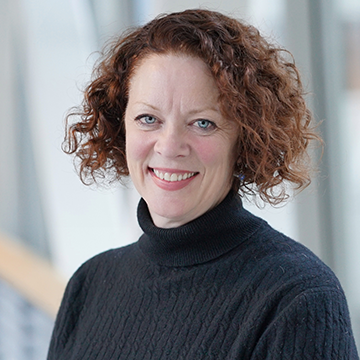
Judith Moskowitz, PhD, MPH
Professor and Chief of Intervention Science Division in the Department of Medical Social Sciences at Northwestern University
Dr. Moskowitz is Professor and the Chief of Intervention Science Division in the Department of Medical Social Sciences at Northwestern University. Trained as a social psychologist, she studies the impact of positive emotion on adjustment to health-related and other life stress. She is currently conducting trials of an intervention designed to increase positive emotion and improve psychological and physical well-being in people experiencing various types of life stress, including people living with HIV.

Leah Rubin, PhD
Co-Director, Brain Health Program at Johns Hopkins University
Dr. Rubin is a cognitive neuroscientist and epidemiologist with an unwavering dedication to improving central nervous system (CNS) complications in people with HIV (PWH) both nationally and internationally. She has over 10 years of experience leading a program of NIH-funded research aimed at understanding patterns, predictors (including sleep), and mechanisms (including immune/inflammation) of neuropsychiatric complications (cognition, mental health) among PWH. She works with CCS Sleep Data to articulate the relationship between sleep quality and cognitive function. As co-investigator, she brings her experience in designing, implementing, and analyzing neuropsychiatric outcomes and works to unpack heterogeneity in cognition and mental health in a number of cohorts including the Women’s Interagency HIV Study (WIHS) and Multicenter AIDS Cohort Study (MACS). Dr. Rubin provides expertise in identifying and understanding possible mechanisms underlying sleep-cognition alterations in men and women with HIV including the role of immune/inflammatory mediators, experience in epidemiology and biostatistics in addressing these associations.

Magdalena Bednarczyk, MD
Assistant Professor, Geriatrics at Rush University
Dr. Bednarczyk is an Assistant Professor and Geriatrician at Rush University Medical Center. As a clinician caring for older adults in outpatient, inpatient, acute rehab, and skilled nursing facilities, she has repeatedly seen the negative consequences of multiple chronic conditions, frequent hospitalizations, unrecognized frailty and other geriatrics syndromes. She is the director and co-founder of the FAIR (Functional Assessment and Individualized Recommendations) Frailty Clinic, a geriatric oncology consultative clinic, which is embedded in RUSH’s Cancer Center. Improved clinical interventions, and increased patient health and life span are feasible by achieving better understanding of the mechanisms of aging. Dr. Bednarczyk will contribute to the CCS Aging agenda with her expertise in frailty and geriatric medicine.

Mariam Aziz, MD
Associate Professor of Medicine and Pediatrics, Rush University
Dr. Aziz is an Associate Professor of Medicine and Pediatrics at Rush University. She is the Program Director of Infectious Diseases Fellowship for the combined Rush/Cook County Program. She is the site PI for IMPAACT (International Maternal Pediatric Adolescent AIDS Clinical Trials Network), a global collaboration of investigators and institutions with the purpose of conducting clinical trials that treat and prevent HIV infection and its consequences in infants, children, adolescents and pregnant/postpartum women. She contributes her expertise to the Gynecology and Pregnancy Working Group.

Nataliya Pyslar, MD
Founder and Director, Lipid Disorders Clinic and Cardiovascular Genetics at Cook County Health
Dr. Pyslar is a Faculty Attending Cardiologist and Board Certified Lipid Specialist with primary expertise in Lipid Metabolism Disorders, Atherosclerosis and Preventive Cardiology, providing care to the underserved communities of Cook County, IL. She contributes her expertise to the Cardiovascular Working Group.

Neha Bhandari, MD
Assistant Professor, Pulmonology at Rush University
Dr. Bhandari has been working as a pulmonary-critical care attending at CCHHS for almost a decade. She is the director of the Intermediate Care Unit at Stroger Hospital and was one of the pioneers in establishing the Pulmonary Embolism Response Team (PERT) at Stroger Hospital. She is also a member of the National PERT Consortium. Dr. Bhandari established the ILD clinic at Provident Hospital, where she currently serves as the Vice President of Executive Medical Staff and Chair of the New Doctors’ Forum. Dr. Bhandari is Assistant Professor of Medicine at Rush Medical College. Her areas of interest include pulmonary infections, interstitial lung disease, bronchiectasis, and ventilator management. She contributes her expertise to Chicago MWCCS by reading Pulmonary Function Tests.

Olamide Jarrett, MD, MPH
Associate Professor, Infectious Diseases at University of Illinois at Chicago
Dr. Jarrett is an Associate Professor of Medicine in the Division of Infectious Diseases at UIC. She has been involved in studies exploring the relationship between different immune factors and a woman’s risk of trichomoniasis as well as the relationship between specific vaginal bacteria and incident trichomonas infection. Her study findings add to the body of literature that the vaginal microbiota play a significant role in a woman’s risk of sexually transmitted infections. Dr. Jarrett will contribute to the CCS Pathogenesis agenda with her expertise in STI epidemiology and HIV/STI prevention in women.

Shivanjali Shankaran, MD
Associate Professor, Infectious Diseases at Rush University
Dr. Shankaran is an Associate Professor in Infectious Diseases at Rush University Medical Center and Director of Inpatient General Infectious Diseases. She provides care to people living with HIV, at Rush clinics as well as at the Ruth M Rothstein Core Center. She is involved in clinical research in HIV, COVID-19 and monkeypox treatment and prevention. Dr. Shankaran contributes to the Emerging Infections working group with her expertise in acute and long COVID.
Meet Our Early Stage Investigators (ESI)

Christina Farr, PhD
Assistant Professor, Case Western Reserve University
Dr. Farr is an Assistant Professor of Pathology, Center for Global Health and Diseases at Case Western Reserve University, and a member of the Rustbelt Center for AIDS Research (CFAR) and the Case Comprehensive Cancer Center. The overarching interest of her research has been to understand mucosal host-microbe interactions that influence human reproductive health and disease, with a particular interest in cervicovaginal innate immunity and the microbiome. Current research projects in her lab are focused on HIV, cervical cancer, infertility, and transgender health. She leads the microbiome analysis to investigate changes that occur across the menopause transition in women living with and without HIV from the Cook County Clinical Research Site of the MACS/WIHS combined cohort.

Julie Bobitt, PhD
Assistant Professor, Dissemination and Implementation Science at University of Illinois Chicago
Dr. Bobitt is an Assistant Professor at the Center for Dissemination and Implementation Science. Dr. Bobitt has over 20 years of working to advance programs and policies on behalf of older adults. Her research interests focus on the dissemination and implementation of interventions that impact the well-being of older adults with chronic conditions. Her most recent work has focused on older adults’ use of opioids and cannabis to address chronic pain. She will contribute to the CCS Aging agenda with her expertise in older adults’ use of cannabis to address chronic pain and mental health symptoms.
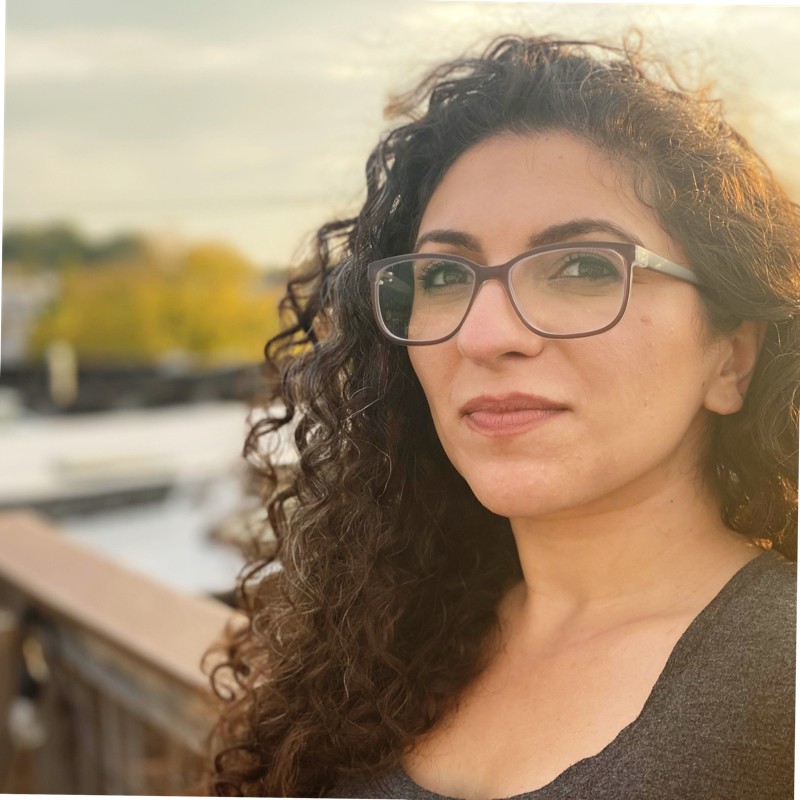
Raha Dastgheyb, PhD
Assistant Professor, Neurology at Johns Hopkins University
Dr. Dastgheyb is an Assistant Professor of Neurology at the Johns Hopkins Brain Health Group. With a background in engineering and computer science, she applies tools from those fields to address questions related to brain health. She is working with CCS Sleep Data to articulate the relationship between neurocognitive function and sleep quality and will continue to delve into objective and subjective sleep data and HIV-related outcomes. She is working with CCS Sleep Data, creating and implementing programs to analyze, visualize, and interpret large data sets, to articulate the relationship between neurocognitive function and sleep quality.
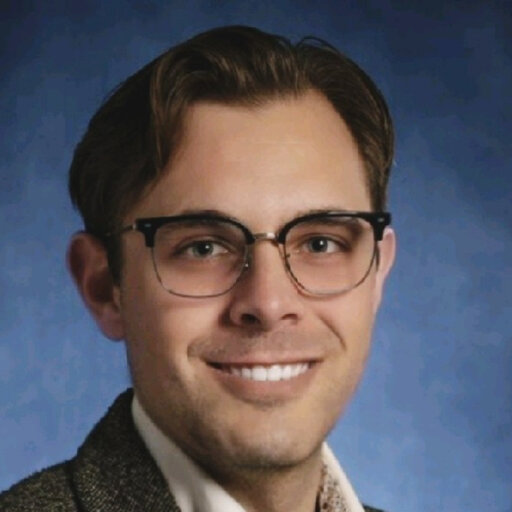
Eran Shorer, MBChB, MSc
Postdoctoral Fellow, Neurology at Johns Hopkins University
Eran is a medical doctor and computational neuroscientist currently serving as a postdoctoral research fellow in the department of Neurology at Johns Hopkins University. His research involves leveraging computational techniques to analyze diverse streams of neurological data.

Hemil González, MD
Assistant Professor, Infectious Diseases at University of Texas Medical Branch at Galveston
Dr. González is a physician-scientist who is passionate about neuroHIV research. His interest in the field led him to the Al-Harthi Lab, where his worked has focused on determining the effects of antiretroviral drug on human glial cells, CNS resident macrophages, and neurons. He has also modeled CART neurotoxicity using human cerebral organoids. Dr. González has dedicated his career trajectory to studying the neurological complications of HIV/AIDS. He draws from his extensive clinical experience when designing research projects. Furthermore, he is committed to advancing science by developing an intellectually rigorous methodology with a high degree of clinical relevance. Dr. Gonzalez will contribute to the CCS Aging agenda with his expertise in NeuroHIV and the effects of antiretroviral drugs on the central nervous system and peripheral immune cells.
John Martin, PhD
Assistant Professor, Department of Orthopedic Surgery
Dr. Martin is a bioengineer by training with a research focus in degeneration, regeneration, and physical function of the musculoskeletal system, primarily the spine. Martin’s research group develops medical imaging and data science tools to link joint disease and patient factors for a holistic view of disease. Currently, their work is in evaluating how socioeconomic factors and physical fitness are related to spine disease and low back pain.
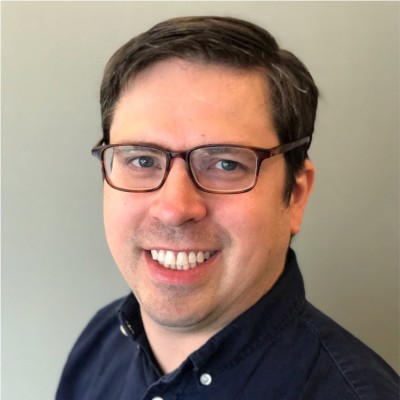
Jeffrey R. Schneider, PhD
Assistant Professor, Department of Microbial Pathogens and Immunity
Dr. Schneider got his PhD from the University of Chicago where he studied biochemistry and focused on post-translational modifications. He did his postdoctoral fellowship at Northwestern University in the laboratory of Dr. Thomas Hope, where he used these skills to tease apart mucosal antibody interactions in the context of HIV infection. During this time, he helped develop a platform to track antibodies in vivo through fluorophore conjugation and contributed to this body of research by helping to show that it takes a week for antibodies to reach the vaginal mucosal surface following IV injection. He received a K01 to use this platform to investigate how the timing of broadly neutralizing antibody injection affects distal site accumulation of virus following intravaginal challenge. Dr. Schneider is an assistant professor at Rush University Medical Center where he investigates HIV latency in the brain, characterizing antibody responses to SARS-CoV-2 infection and COVID-19 vaccination, and most recently working towards increasing efficacy of antibody therapy in such maladies as Breast Cancer and Alzheimer’s disease. He just received a pilot award from the Chicago-Cook County MWCCS to investigate augmented inflammaging in people living with HIV who experience viral blips.
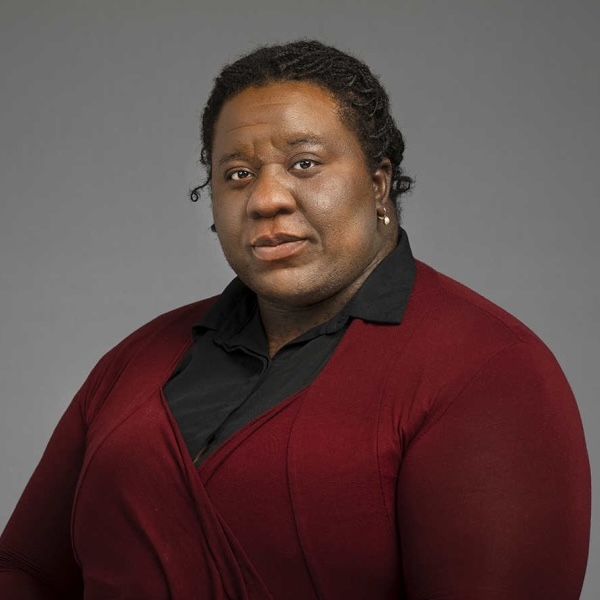
Jennillee Wallace, PhD
Assistant Professor, Department of Microbial Pathogens and Immunity, Rush University
Dr. Wallace is an Assistant Professor in the Department of Microbial Pathogens and Immunity at Rush University Medical Center. Her research focuses on HIV-associated neuroinflammation and involves utilizing humanized mouse models to study the dynamics of HIV infection; specifically, the role of monocyte derived myeloid cells, how they are dysregulated and their subsequent effect in tissues. Additionally, Dr. Wallace’s research explores the effect of commonly prescribed antiretroviral drugs on macrophage function, particularly the drugs that cause mitochondrial dysfunction and the subsequent effects on cell phenotype and function.

Kostya Leskov, PhD
Research Scientist, Case Western Reserve University
Dr. Leskov is Research Scientist at the Department of Molecular Biology and Microbiology at Case Western Reserve School of Medicine and Associate Director of the CWRU Center for Excellence on the Impact of Substance Use on HIV, Core C: Computational Biology in Substance. His research focuses on identifying single-cell transcriptome and proteome signatures of reproductive aging, HIV latency, neurodegenerative disorders and substance use in people with HIV. Dr. Leskov is utilizing a high-throughput single-cell transcriptome profiling of clinical samples (PBMC, lymph nodes, and brain tissue) to identify and measure viral reservoirs, as well as bystander cell innate and adaptive immune responses to HIV infection in participants who either use substances or have ceased using them. Dr. Leskov has been collaborating with Chicago MWCCS for last three years focusing on single-cell sequencing of longitudinal PBMC samples from women with HIV and applying biostatistical approach to hormone and proteome data. Dr. Leskov will contribute to the CCS Pathogenesis agenda with his expertise in HIV-focused bioinformatics methods.
